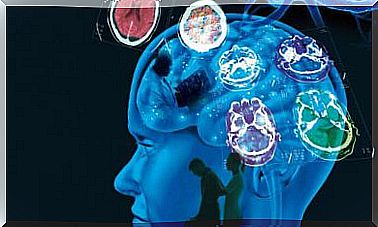The Best Therapy For Addictive Personality Disorder

In cognitive therapy for addictive personality disorder, the patient becomes increasingly autonomous and gradually changes the conflicting mindset of their own autonomy and abilities.
What is Dependent Personality Disorder?
According to the Diagnostic and Statistical Manual of Mental Disorders (DSM-5), a person with a dependent personality disorder experiences a dominant and strong need to be cared for. This leads to inferior behavior, over-attachment and a fear of separation. It begins at an early stage in adulthood and can be seen in different contexts. It is common to see at least five of the following symptoms:
- It is difficult for them to make choices on a daily basis without relying on the advice and reassurance that others can give them.
- They need others to take responsibility for the most important areas of their lives.
- The person has difficulty expressing disagreement with others for fear of losing support or confirmation.
- They have difficulty initiating projects or doing things themselves. This is due to a lack of self-confidence for one’s own judgment and one’s own abilities, and not due to a lack of motivation or energy.
- They strive for acceptance and support from others, to the point that they voluntarily do things they do not really want to do.
- Those who suffer from this often feel uncomfortable or helpless when they are alone. This is due to an unfounded fear of not being able to take care of oneself.
- When a close relationship ends, they are constantly searching for another relationship in order to be cared for and supported.
- They feel an unrealistic worry or fear of being abandoned or having to take care of themselves.
A bad self-image
A person with an addictive personality disorder has a bad self-image because they think they can not do things they really want to do. They believe that others must save them because they are stronger than them and also believe that they are inadequate or helpless.
When you have these thoughts about yourself, the normal reaction is to look for other people who can take responsibility for your life. Finding someone to protect and take care of is a perfect solution to feeling inadequate or weak in a hostile and scary world.
Cognitive therapy in addicted personality disorder seeks to remove the intensity of this reaction by improving the patient’s self-esteem. To achieve this, they use cognitive techniques such as guided discovery and Socratic questions. In addition to this, they use behaviorist experiments and other more specific techniques.

How does addictive personality disorder develop?
This disorder develops like many others: as a reaction to past experiences from childhood and adolescence. What lies beneath this disorder is an extreme fear of loneliness. This is due to the belief that the person can not defend himself from the world “attack”.
These are often people who in childhood experienced a certain lack of closeness. Thus, they grew up with an inner emptiness that creates an intense suffering, something they try to alleviate with different people (normal partners).
It can also occur in cases of adopted children or in those who have been ill for a long time and have no choice but to depend on others.
When someone becomes heavily dependent on their parents, and the parents have overprotected them, it is likely that they will develop addictive personality disorder.
In general, their partners tend to complement themselves. Thus, the need for addiction becomes more intense and their motivation to act on their own decreases. Their partners are people with more narcissistic tendencies, who tend to impose their own choices on others. They have no qualms about expressing their opinions, even though no one has asked them to.
Therefore, the dependent person must not make an effort in everyday life. Their partner is responsible for what they are going to eat, how they are going to decorate the house, and how many children they are going to have, and so on.
Cognitive therapy for addicted personality disorder
Cognitive therapy, when used for addictive personality disorder, first seeks to analyze the greatest cognitive distortion is in these patients. Their way of thinking is against the whole idea of independence.
People with addictive personality disorder tend to believe that:
- “I can not survive if no one takes care of me.”
- “I am not able to handle life with the resources I have or the ones I can acquire.”
- “Independence means living all alone.”
In the same way, they manifest opposing thinking about their abilities. When you ask them something, they usually think they are not up to it. They think that their partner can do it much better than they can, or they say to themselves that they are not good enough, and that they always manage to mess it up.
To help patients with addictive personality disorder to become autonomous
This distorted way of thinking about one’s own autonomy needs to change. Experts must help the patient to learn how to gradually separate from all the people they depend on. They also need to separate from their therapist.
It is also important that terms such as “independence” and “autonomy” are not used at the beginning of the treatment. The reason for this is that the patient often does not acknowledge that it is part of their problem. It is much better for patients to realize this on their own as the therapy progresses. In this way, they are much more likely to eventually verbalize this discovery. This helps them get on the road to recovery.
At the beginning of treatment, they will need a certain degree of dependence. The reason for this is that the therapist initially has to do more than half of the work. But this pattern will change through therapy sessions.
Socratic questions for patients with addictive personality disorder
In these patients , Socratic questions become very important, as it ensures that the patient has an active role. It is not good for the therapist to try to explain why the patient feels it one way or another, or how they should act and react. If you do, you will simply intensify the addiction that you are trying to treat.
The patient is the one who little by little will provide material for the therapy class. They will decide what kind of topics to address and talk about. Through the various questions one asks, they will draw their own conclusions.
The therapist must be careful and not be tempted to act on behalf of the patient. Therapy with this type of patient is sometimes slow and frustrating. Quite often one is tempted to “save” the patient and tell them what to do. But this will do more harm than good.
Set professional boundaries
Establishing professional boundaries is fundamental. It is not uncommon to see addicted patients fall in love with their psychologist. It must be clear from the outset that there are no opportunities to go beyond the limits set by the therapeutic framework.
As a technique, it is common to have the patient write down topics they want to discuss in therapy classes in a diary. Another useful technique is that they keep a record of specific evidence of their own personal capacity and achievements.
For the latter, it is helpful to gradually expose the patient to a situation that they have previously avoided – situations that they think they cannot handle. It is a good idea for the addicted person to establish a hierarchy of decisions. They write down all the types of decisions they need to make.
Rehms self-control therapy
Finally, Rehm’s self-control therapy has been shown to be an effective treatment for those with addictive personality disorder. This therapy trains the person to observe and evaluate themselves, as well as establish realistic goals and obtain reinforcements.
This is very important as the over-dependent people tend to set high standards and also underestimate how they can reach them. Self-control therapy can be very helpful for those in this area.








